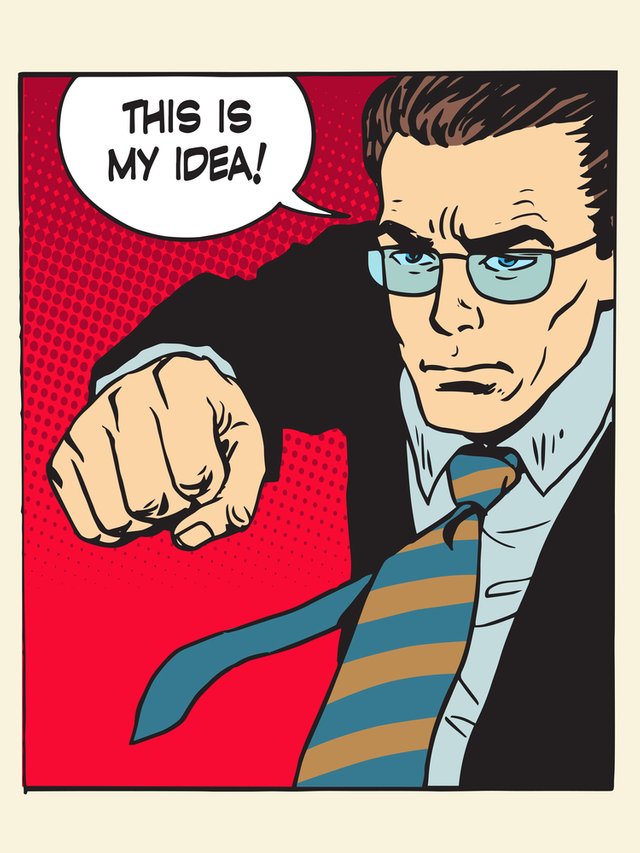When you come up with an idea, it's easy to think that anyone who has the same idea must have stolen it from you. We've all done this at one time or another — and it can be extremely hard to get over when the thought takes hold in your mind. But just because someone else has the same idea as you doesn't mean that they stole it. The fact is, most inventors will come up with a similar idea as someone else at some point in their lives — and that doesn't make either of them thieves.

What are the basics of patent infringement?
A “patent” is a set of exclusive rights granted by a government for an invention. The invention must be new, non-obvious, and useful. If a company’s product does not infringe on any of the patents, then the company is free to launch the product. Why Do Ideas Happen?
One of the greatest duties of a leader and intellectual creator is to inspire their team members and collaborators to think beyond the boundaries of current knowledge. Creatives need to be challenged, incentivized and encouraged to think in new ways. On the other hand, it can be extremely easy to push a familiar idea down the memory hole of our brains.
Actually, the opposite is usually true: By constantly telling our children that ideas are worth stealing, we're actually accomplishing the opposite. It's amazing what we can unintentionally brainwash our children into believing.
The same goes for ideas. If you constantly tell your children that ideas and inventions are risky and could lead to the loss of their freedom, basically every idea that comes to mind is going to scare the life out of them. So when you address this negative thought process by using the concept of freedom as your primary motivator, you have accomplished two important things:
You've educated your children to be cautious about what they think, and you've created a positive deterrent. Imagine your kids socializing at a summer camp or a college campus. You decide to take your kids camping — a huge, scary venture that involves lots of equipment. Sure, safe and healthy, fun and adventurous can all be summed up with these words, but your eleven-year-old will probably be pretty terrified to step foot in the woods, especially after a few beers. You probably expect to be teased and tormented for taking your children to such dangerous, forbidden areas. Instead, you have provided an excellent positive deterrent; the fear has been replaced with a sense of pride that comes with knowing your child is capable of making her own decisions.

How do you know if there is infringement?
If you believe that your copyrighted work has been infringed, there are a number of steps you can take. First, make sure you’re familiar with the specifics of your work, and make sure you know it well enough to be able to recognise if it’s been copied. If you know it well enough, you can usually prove it without having to touch your copyrighted work. I’m going to talk about the most important and effective tool you have at your disposal: plagiarism.Next, I’ll explain why having a good argument is important in establishing ownership, and how easy it is to go around accusing others of stealing your ideas. Does plagiarism really happen? How often does plagiarism happen? Is it worth suing someone for? I think you'll agree that the answers to these questions, and many others, cannot be generalized—so let's start by looking at some examples [spoiler alert: a lot of these examples are my own]). Search Engine Executives and Spammers I’ve already written about why search engines cannot be sued for search engine spamming, but in this post, I’ll be going into more detail about exactly what search engines can and cannot be sued for. If you want further technical info, check out Search Engine Copyright Infringement Explained. First, let's look at some examples of where your creative content might have been copied: Joe Fuel sells lawnmowers. Andy Baio sells lawnmowers. Goodwin sells scooters. Is there a right or wrong answer to the question “Which one of these guys copied my idea?”? Probably not. You have to decide "Was it attempted or conscious?" Here is a catch-all: all examples of obvious copying. There are a few obvious examples that people tend to overthink when making intelligent if somewhat utilitarian decisions. Creating Something Like “The Office” on Set-It-and-forget-It It’s tempting to create something that looks and feels real, like The Office. Sadly, the vast majority of people — myself included — will be too lazy, too foolish, or both to actually develop the company’s patented idea on a weekly basis.
.jpg)
How can you protect your intellectual property rights?
If you have a great idea for a business, it’s important to protect your intellectual property rights from the very beginning. Doing this will prevent other people from stealing your idea, and it will help your idea become a business. There are several ways to protect your intellectual property rights including patenting, trademarking, and copyrighting your business idea. Patenting and trademarking your idea
Do you think you can just go right to the manufacturer and ask for a killer widget for your teacup dog? Well, you can, but your chances of success are very slim. Future generations of competitors could easily copy your idea and sell it at a lower price than yours. So how do you protect your idea? The answer lies in your idea’s intellectual property rights.
If you remember the movie " Robin Hood, “ the law prevents people from using your idea for a worse or cheaper product. However, your idea might be strong enough to stand on its own! Someone else can't just copy your idea (unless they are you!).
Trademark law is not as cut and dry as copyright law, but it is still very effective. Trademark is our country’s best protection against copying. (Too bad it’s not used much to protect our ideas!) By using the registered “trademark,” you prove to the trademark office that your important idea is unique and not merely similar to another idea. Once you get a trademark, you are practically guaranteeing that you have the original and only way to use that idea.
Over the years, I have seen many different business ideas taken from individuals. Some of these ideas were legitimate, like the laws regulating trademarks for manufacturers. Some were not so legitimate, as the idea for a sex toy. Later on, I’ve seen additional types of ideas stolen from unsuspecting individuals, such as pictures.
Thank You for reading this article. Hope you got something informative.